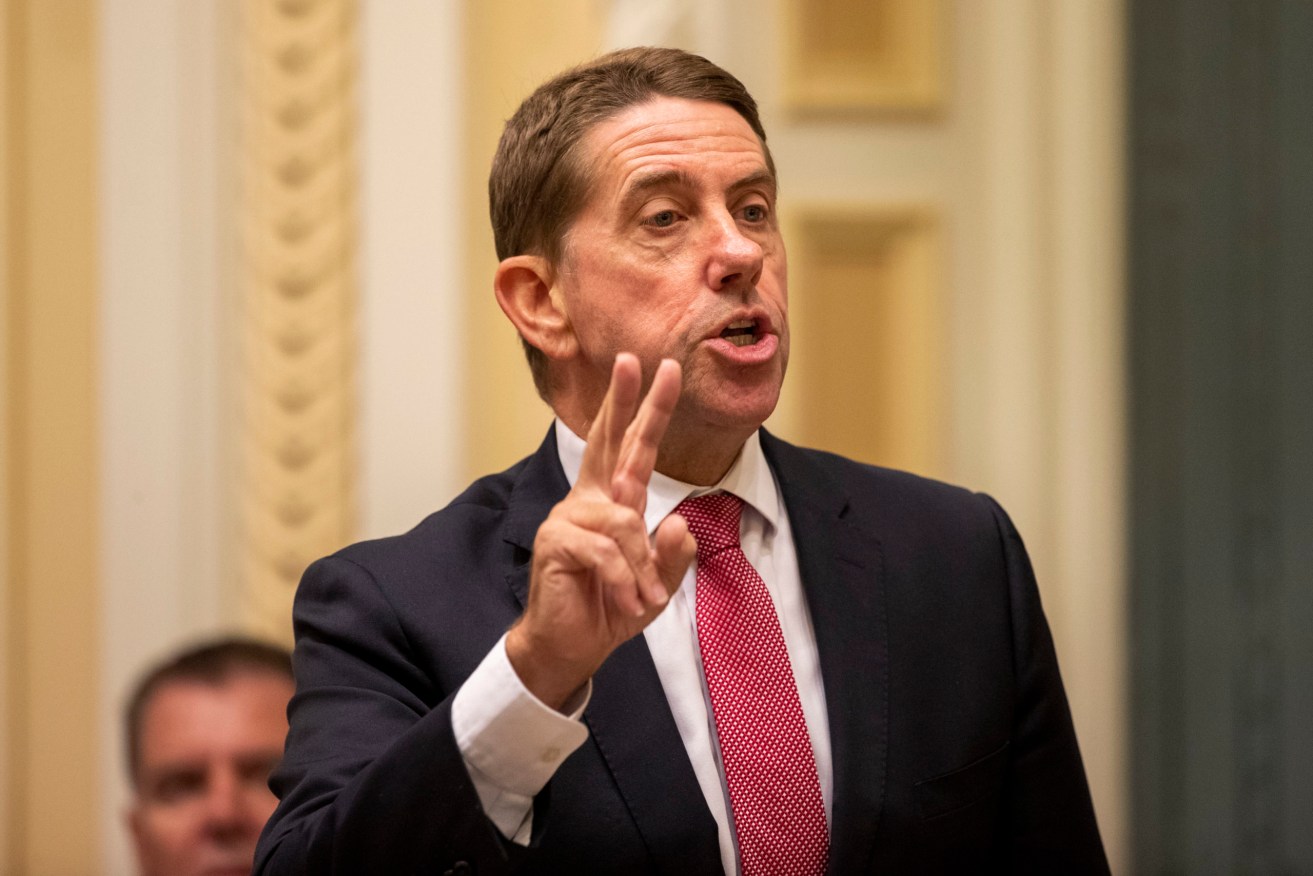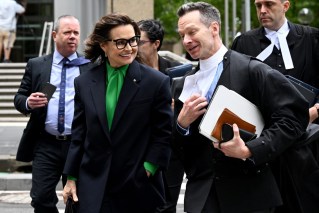The perils of taking on property investors: How bad politics can produce bad policy
The Palaszczuk Government should be careful about pandering to stereotypes, writes Madonna King.


Treasurer Cameron Dick. (Photo: AAP Image/Glenn Hunt)
Bad landlords exist. Just like ignorant politicians, dodgy journalists and lazy public servants.
But stereotypes can serve to hide those who are not – and that underpins a weighty problem Annastacia Palaszczuk and her government has around the housing crisis.
On the one hand, the ALP is trying to curtail a housing calamity where families are homeless, and women aged 55 and over are becoming the most vulnerable to losing a secure roof over their heads.
That’s commendable. But in a strategy that makes no sense, it is also making it almost impossible for landlords; many of whom are generous and reasonable and trying to make ends meet, like everyone else.
Some landlords are wealthy. So are some renters. Many in both categories are not – and are struggling with rises in petrol prices and fruit and vegetables and school fees, and even the odd night out.
But add to that the onerous new measures landlords are being slapped with, and the impact might not be the solution Annastacia Palaszczuk is looking for.
Her renters’ tax, where some Queenslanders with a rental property interstate will now face an increased levy, is actually a fair idea – in theory.
We are one country and why wouldn’t the value of land interstate be added to the tally of that owned here, in determining the value of land held by individuals?
Indeed, it’s such a good idea that other states are sure to follow suit. They’re mad if they don’t.
But the problem here is two-fold. Firstly, its timing. Mortgages are rising, adding a significant impost on landlords, who are renting properties to those who need them.
Secondly it means that those landlords, who are feeling their pockets empty, will have little recourse but to increase rent levels at their earliest opportunity.
Under different rules, which will come into effect on October 1 in Queensland, that will be at the end of the current lease.
So in a nutshell, Treasurer Cameron Dick increases the land tax net for Queensland landlords, just as they begin to struggle to find the extra money to pay for rocketing mortgages, along with the wayward cost of living rises everyone is facing.
And we call that clever?
But it’s then made worse by the way the Palaszczuk Government is stripping landlords of power and handing it to tenants; a rule that escalates from October 1.
That’s when rental law changes will make it unreasonably hard for landlords to control what happens with the property they own.
It will be harder to end tenancies, or to move back into their properties if circumstances dictate that, or to give it to someone in their family, who is in desperate need of housing assistance.
It will put an impost on landlords and it will also mean that tenants will have the upper hand when it comes to keeping dogs – or most other pets – inside the home.
Saying ‘no’ simply is no longer an option, after October 1.
That all might be fair, in a fair world. And in the short term, it might even quell the ballooning number of families and their pets who are calling their car a home.
But is this a strategy that runs beyond the next lease? No. And could it make the housing crisis worse? Almost definitely.
Talk to body corporate managers or landlords and all those who have been leasing the same property for years, for a very similar price. They see they have no choice but to increase that rent to market value – the moment the lease expires.
They are not being ruthless. The market value for rent has risen exponentially over recent years – but landlords across the state have largely dampened their own returns because of low interest rates.
Many can no longer afford to do that – and the impact will be skyrocketing rents, to meet market value, as leases expire.
That means those living in rented accommodation now, paying good and reasonable landlords, will need to find somewhere else to live.
It’s hard to find anyone who disagrees with this argument – so how does the Palaszczuk Government plan to deal with that?
By short-term pandering to the ‘bad’ landlord stereotype, many of whom are ALP voters?
It’s understandable then, that many voting landlords will see them through a similar stereotype – the ignorant politician stereotype – come the next chance to vote.
The cost to landlords will be obvious soon after the October 1 laws take effect. The cost to the Government will take a little longer, but will be no less manifest.
Annastacia Palaszczuk could check that with Bill Shorten, who learnt three years ago what happens when you mess with mum-and-dad property investors.












